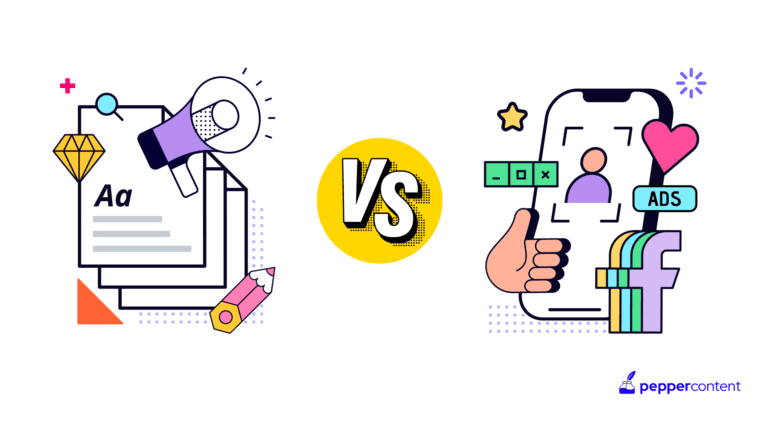
If you are a 90s kid, you’ve grown to love and live with Maggi noodles. Nestlé Maggi, in all its glory, not only enjoyed an 80% market share in its heyday but was also a household name. Owned by the Swiss multinational Nestlé, Maggi came from the mother brand that brought us some of the most loved products, think Kit Kat, Nescafé, and Cerelac.
Maggi, the instant noodle product of Nestlé, ruled the roost for 30 years in India. Over the years, it became a hot favorite among bachelors, teenagers, kids, and their moms due to its “two-minute noodle” strategy. Thousands of Maggi booths popped up around the country, making it one of India’s most famous street foods. It was the only available option in the quick-food category.

Right up to the year 2015, it was all smooth-sailing for Nestlé India. However, it wasn’t all hunky-dory through the years. The Nestlé Maggi controversy took the world by storm.
What Was the 2015 Nestlé Maggi Ban All About?
The biggest shock that came to light was in the summer of 2015 when we saw the Nestlé Maggi controversy. Rewind to 2014, when officials from Uttar Pradesh’s Barabanki district reported high levels of lead and traces of monosodium glutamate (MSG). The fact that Maggi’s packaging clearly stated that it had no added MSG created a stir: the much-loved Maggi noodles were now in trouble.
Samples were sent to Gorakhpur and then to the Central Food Laboratory (CFL) for further evaluation. The CFL backed these claims and found hazardous lead levels in the product. It was eventually in the following May that the Food Safety and Standards Authority of India (FSSAI) banned Maggi in the country. Between June and September 2015, Nestle recalled 38,000 tonnes of Maggi noodles from across the country.
The Nestlé Maggi controversy shook the PR world, making headlines every day. Every individual was talking about it on social media.

What Nestle Did Wrong: PR Crisis Management
Here are a few lessons all brands should learn from the Nestlé Maggi controversy.
1. Being in complete denial
One of Nestlé’s early errors was underestimating the scope of the issue. After the recall order, it went into hiding for over three weeks. On May 21, the conglomerate released its first news announcement. “The firm does not agree with the ruling and is filing the necessary submissions with the authorities,” the company announced in a news statement. “That’s why Maggi Noodle products are safe to eat,” it said.
2. No media briefing
Even after two months of the ban, Nestlé India had no crisis management plan. Not a single media briefing took place. Public outcry was at its peak. With the situation worsening day by day, no media monitoring or measurement techniques were taking place. Maggi noodles had cooked up a storm, but were in a soup themselves!

Undervaluing the power of social media
Throughout 2015, both Nestlé India and Maggi seemed to be giving robotic or automated responses to customer queries on social media. Some responses were full of long PDF links. Social media, the most intimate and active medium to reach out to customers, seemed to have no value in their crisis management plan.

3. A fiasco for brand influencers
Well-known Indian celebrities, such as Amitabh Bachchan, Madhuri Dixit, and Preity Zinta, were brand ambassadors of this FMCG company. To add to their woes, people lodged cases against them for promoting a harmful product, so much so that the brand ambassadors had to appear in court. In 2015, Nestlé posted its first loss in 2017 after Maggi noodles were banned.
The Nestlé Maggi disaster in India teaches important PR lessons. The Nestle Maggi controversy over lead levels in noodles illustrates that presenting the facts is as crucial as communicating them. Nestlé executives in India discovered this the hard way.
The Maggi noodles fiasco shows the importance of engaging with consumers. Being right shouldn’t be your priority. It is about responding appropriately and finding a solution.
In times of a PR crisis, a brand must try not to lose foresight. For a diversified portfolio and less reliance on a single product, the business launched additional items. The brand reduced its business structure and enhanced advertising. The most significant benefits came from nimble communication and PR.

FAQs
There were primarily two reasons:
1. The regulated lead levels back in 2015 were 2.50ppm as against the MSG levels that were at 17.2 ppm (according to the laboratory in Gorakhpur).
2. Officials noticed a breach when the company’s packaging stated, “no added MSG” (a clear misrepresentation).
Nestlé took a multi-pronged approach to win the trust of consumers once again:
1. It started from scratch in terms of production.
2. It invited the media to visit their factories, helping them understand the nuances of manufacturing.
3. It commenced an aggressive crisis management plan in terms of social media marketing.
4. A new marketing campaign called #WeMissYouToo went viral on social media.
Maggi’s “two-minute” advertising campaign made Maggi noodles a hit in India. It focused on opening the packet, immersing the noodles with spices in boiling water, and cooking them for just two minutes. In a fast-moving consumer market where everyone is on the go, this strategy clicked with customers and enjoyed cult status.
Here are a few takeaways from the Maggi controversy:
Always engage with your audience.
1. Be thorough with your communication.
2.Advertising on social media and other mediums is key to reaching your target market.
Keep cultural and local aspects in mind.
Be innovative with your product.
Learn to pivot in times of crisis.
Latest Blogs
In this blog, explore the golden rules of using AI marketing tools so you can leverage the benefits to their maximum potential.
In this blog, you’ll learn how to avoid the pitfalls of SEO over-optimization while enhancing your site’s performance.
In this article, we’ll take a look at what AMP is, its advantages and disadvantages, and how it affects SEO.
Get your hands on the latest news!
Similar Posts

Content
9 mins read
Content Marketing vs Advertising – Which One is More Effective?

Content
11 mins read
Interactive Content vs. Static Content: Which is More Effective?

Content
6 mins read